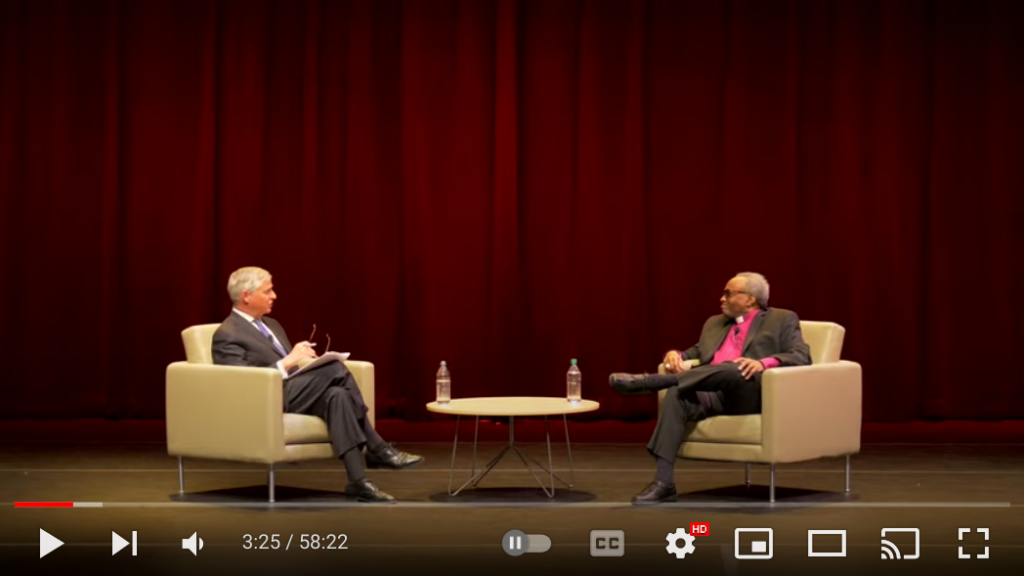Jon Meacham and Presiding Bishop Michael Curry discussed religion and democracy Thursday at a virtual event sponsored by Vanderbilt Divinity School.
RNS interviewed the two Episcopalians ahead of their conversation:
Meacham: Religious faith in the American experience has given us some of our finest hours and some of our worst. I believe that is entirely unsurprising.
The call of the gospel, the call of the Hebrew Bible, is to love God, to love your neighbor as yourself. That is the threshold of both our religious experience and our democratic one — lowercase d. If we do not see each other as neighbors — as opposed to adversaries — then democracy doesn’t work. And I’d argue — and this is probably farther than Bishop Curry would want to go on this — I’d argue therefore, also, faith doesn’t work.
…
RNS: Bishop Curry, you gave a sermon on Jan. 6 last week where you talked about not only the presence of Christian symbols at the insurrection, but also your desire to reclaim Christianity. What are you hoping to reclaim it from, and what do think the work of reclaiming looks like moving forward?
Curry: The canon and I are on same page. The reality is we’re reclaiming what I would suggest is authentic faith relationship with God.
The Bible — the New Testament in particular — is so clear. In John 1, it says, “You cannot love the God who you cannot see if you do not love your brother or sister who you can see.” In Matthew 25: “If you did it to the least of these, who are members of my family, you have done unto me.” There’s a clarity, that love of neighbor — not engaging with the other as the other but as my brother, if you will — that is at the heart and soul of the teachings of Jesus of Nazareth. And if you peel back to what Moses was getting at in the Torah, in both Leviticus and Deuteronomy, and what the Hebrew prophets built on — that love of God, love of neighbor — is seen as the core and the essence of what the religious enterprise is about when God is at the center and when we are not.

